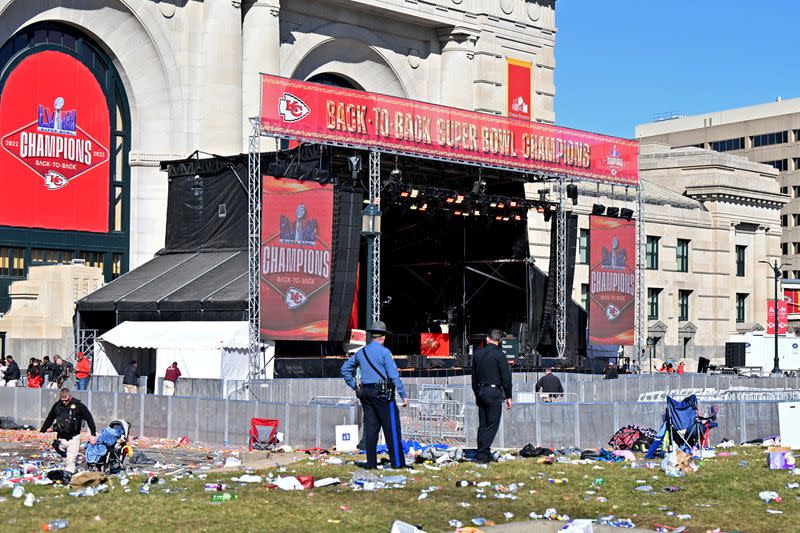Third man charged with murder in shooting at Super Bowl rally in Kansas City

(Reuters) - A third man was charged on Thursday with murder after a gunfight on the fringe of a Super Bowl victory rally in Kansas City, Missouri, last month killed one person and wounded more than 20 others in a quarrel over eye contact, prosecutors said.
Terry Young, 20, faces second-degree murder, unlawful use of a weapon and armed criminal action charges for opening fire during an altercation on Feb. 14 near the city's landmark Union Station, Jackson County Prosecutor Jean Peters Baker said in a statement. The incident occurred while throngs of fans had gathered to celebrate the Kansas City Chiefs' Super Bowl win over the San Francisco 49ers.
Local radio personality Elizabeth Lopez-Galvan, 43, was killed while 25 people, including nine children, were wounded in the bloodshed that unfolded following a parade and rally.
"The victims were caught in gunfire after the defendant and other individuals fired weapons in response to a verbal argument," Baker said.
A lawyer for Young was not listed in online court records.
Six days after the bloodshed, Dominic Miller, 18, of Kansas City and Lyndell Mays, 23, of suburban Raytown were charged with second-degree murder, two counts of armed criminal action and one count of unlawful use of a weapon.
Two teenagers were also charged as juveniles in family court with firearms offenses and resisting arrest. Prosecutors have said they would seek to also charge the two minors as adults, and that the investigation was continuing.
An account of the shooting pieced together from witnesses and video footage determined the violence started when Mays and a group of individuals who confronted him "began arguing about why they were staring at each other," police said in a sworn affidavit.
While all three men are charged with murder, Baker said the evidence shows it was a bullet fired from Miller's weapon that struck and killed Lopez-Galvan.
Conviction for second-degree murder in Missouri is punishable by a prison sentence of 10 to 30 years or life.
(Reporting by Brendan O'Brien in Chicago; Editing by Matthew Lewis)


